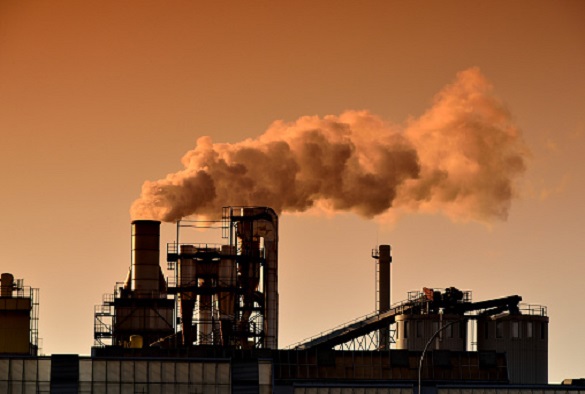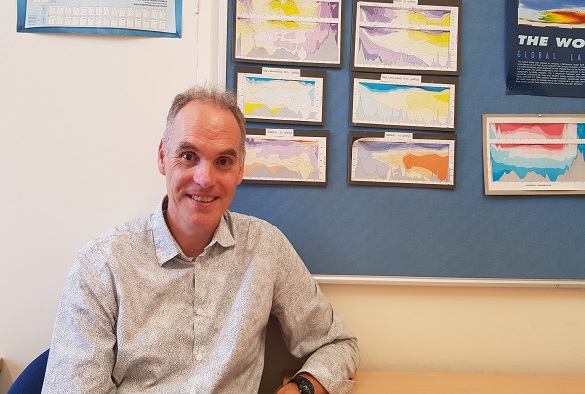
Professor Ric Williams is Chair of Ocean Sciences and APVC for the Faculty of Science and Engineering for Research and Impact:
The climate strike is highlighting the increasing concerns about climate change, particularly from younger generations who will experience this uncertain future.
We know now that the world is warming due to carbon emissions. There has been a recent report from the International Panel for Climate Change highlighting the dangers of a warmer world and how without urgent action we will exceed the Paris warming targets of keeping global warming to below 2oC or preferably 1.5oC within this century.
Unfortunately, there is less time than we would like. There are a dozen years to keep below a global temperature rise of 1.5oC. We are on track to exceed this threshold by year 2030 given the present rate of carbon emissions. The message is simple: the more carbon we emit, the warmer the climate system becomes. We need to reduce the amount of carbon we are emitting to the atmosphere.
Much of the attention in the press is about what we can do individually to reduce your own carbon footprint, such as eat less meat, buy fewer products and fly less. This engagement is of course valuable, but we are not going to solve this massive problem in time by relying on individual action alone. We need major companies, institutions, local and national governments to fully engage and provide a planned way forward.
Universities can play a crucial role here in providing a powerhouse for change. Universities are of course important in educating students, but increasingly we need to be providing new solutions and ways forward to reduce our dependence on using carbon. Some of those solutions might be technical, such as developing new materials to capture pollutants, more efficient ways of storing energy in batteries or capturing energy from the Sun, or reducing the use of more harmful greenhouse gases.
There are health implications from climate change, such as dealing with how diseases spread with climate change and how to cope with heatwaves. There are also major societal challenges, such as how to plan our cities to be more resilient to extreme weather and how to deal with the uncertainty of future climate risks.
The University is engaged in many of these challenges, but no doubt collectively we need to do more, extending from local, national to international action. We need to provide a way forward, including developing smart ways of operating, advising on how we can make our future less reliant on carbon, and mitigate against some of the possible extremes of climate change.
Professor Ric Williams (below), together with collaborators, has published work featuring in the IPCC report for 1.5C warming. To gain some insight into this climate work, please see 3 videos on the carbon cycle and climate change:
1 What happens to emitted carbon? https://youtu.be/B6uOvO1263g
2 Paris or Bust https://youtu.be/0BF6f5bgA8w
3 Carbon emissions and surface warming https://youtu.be/CBl-HncKC5c
